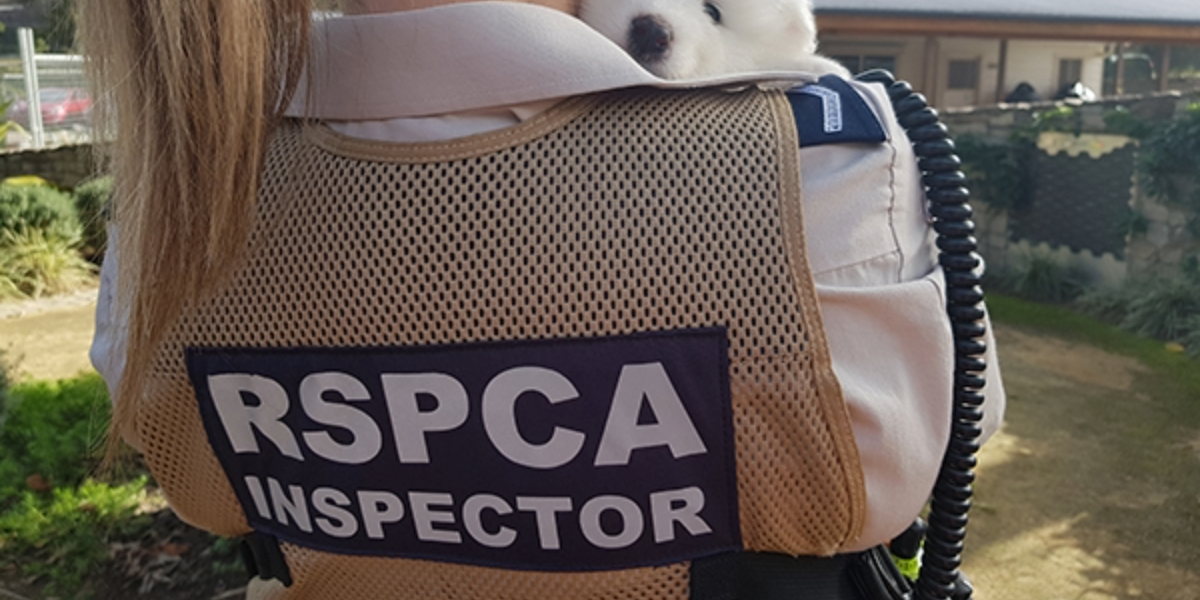The work of animal welfare inspectors is overlapping domestic violence responses amid efforts to hire more staff.
The RSPCA is also investigating more serious cases of cruelty, posing greater danger for inspectors in NSW as the organisation works on recruitment.
There are other factors impacting on people “inclined to commit criminal offences generally,” RSPCA NSW general counsel Kathryn Jurd told a parliamentary inquiry on Monday.
Ms Jurd is also studying the link between animal cruelty and domestic violence.
“I’m seeing a lot of fairly high-level domestic violence associated with animal cruelty prosecutions,” she said.
Apprehended domestic violence orders contain standard conditions requiring those under them not to harm animals owned by the person protected.
The RSPCA had historically prosecuted failures to care or provide for animals, Ms Jurd said.
“We are seeing a bit more kind of overt acts of cruelty … the courts are seeing it similarly,” she said.
Asked about assaults on RSPCA inspectors increasing, Ms Jurd suggested one cause was the severity of the cases attracting attention.
“We are investigating more serious allegations of animal cruelty,” she said.
Inspectors had been bitten as well as having big dogs “sicced” on them, she said.
The inquiry previously recommended inspectors attend in pairs, but despite additional funding from the government, it does not always happen.
“We don’t have double the inspectors to be able to send two people to every job,” chief inspector Scott Meyers said.
Recruitment is ongoing, but some positions, where the organisation desires previous experience in law enforcement, regulation and investigation, are hard to fill, he said.
There are six vacancies across the inspectorate, representing about 10 per cent of its 59 full-time equivalent roles, including team leaders, the inquiry heard.
Four retired while six others resigned in the past 12 months.
United Workers’ Union allied industries executive director Godfrey Moase said workers were in the job to care for animals, but were curtailed in their mission by having to navigate a toxic workplace culture.
“When they feel like serious allegations of bullying and harassment by senior management are going unaddressed, this can push even the most resilient of inspectors to breaking point,” Mr Moase told the inquiry.
Workers were allegedly being abused and disparaged by managers who gave unreasonable and unsafe directions, he said.
The union had become aware of seven formal complaints since the year began, but the RSPCA concluded the allegations were unsubstantiated and did not require further action.
“Our members are deeply dissatisfied with the process undertaken by HR to investigate those complaints,” Mr Moase said.
RSPCA regulation and business services general manager William Beerden said he had reviewed the complaints process and the work of the HR officer when a staffer did not like an investigation’s outcome.
“It’s good quality, it follows procedural fairness,” he said.
But an independent investigator has been engaged, with the organisation waiting to learn how much it will cost, Mr Beerden said.
1800 RESPECT (1800 737 732)
Lifeline 13 11 14
Like what you’re reading? Support The New England Times by making a small donation today and help us keep delivering local news paywall-free. Donate now

